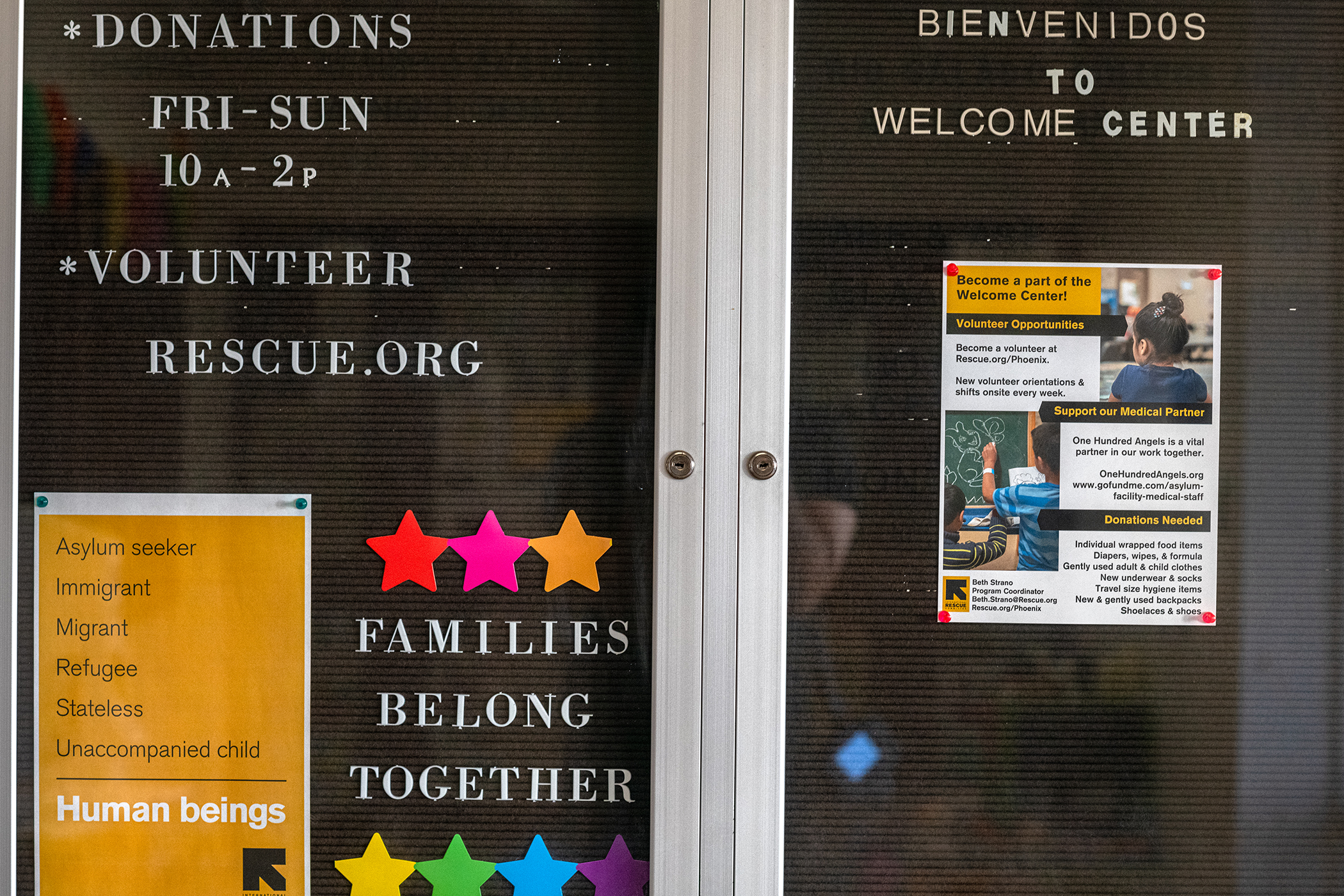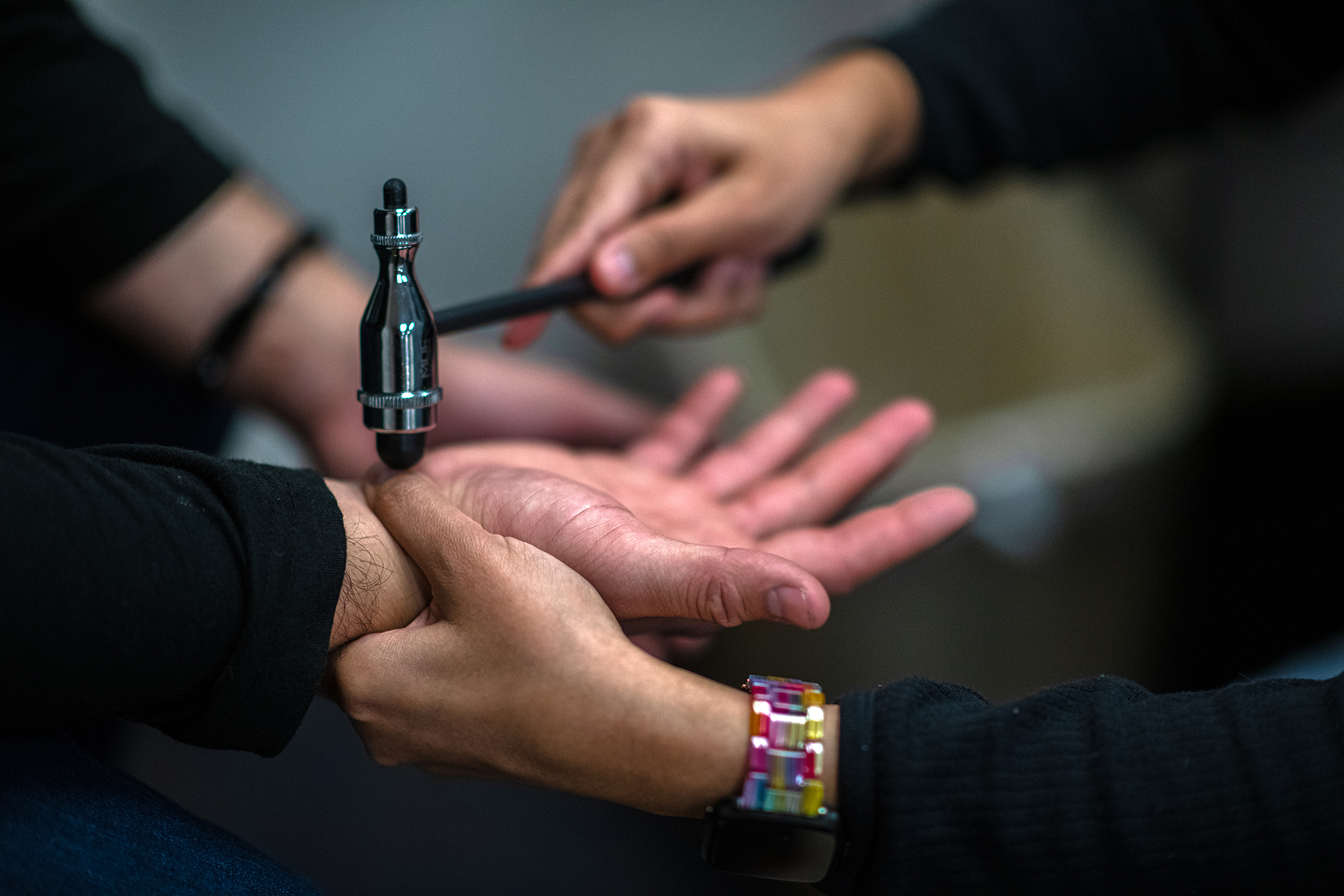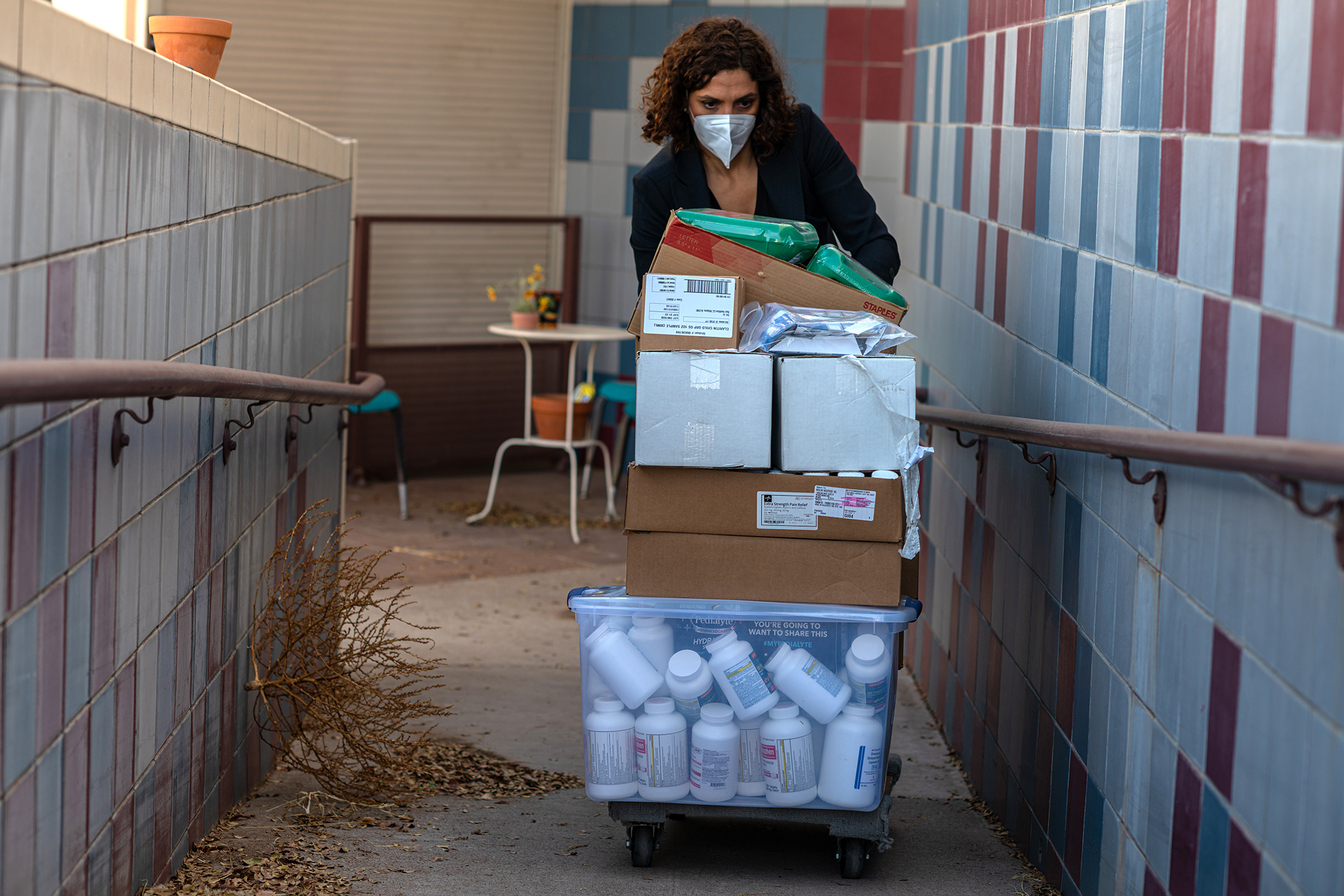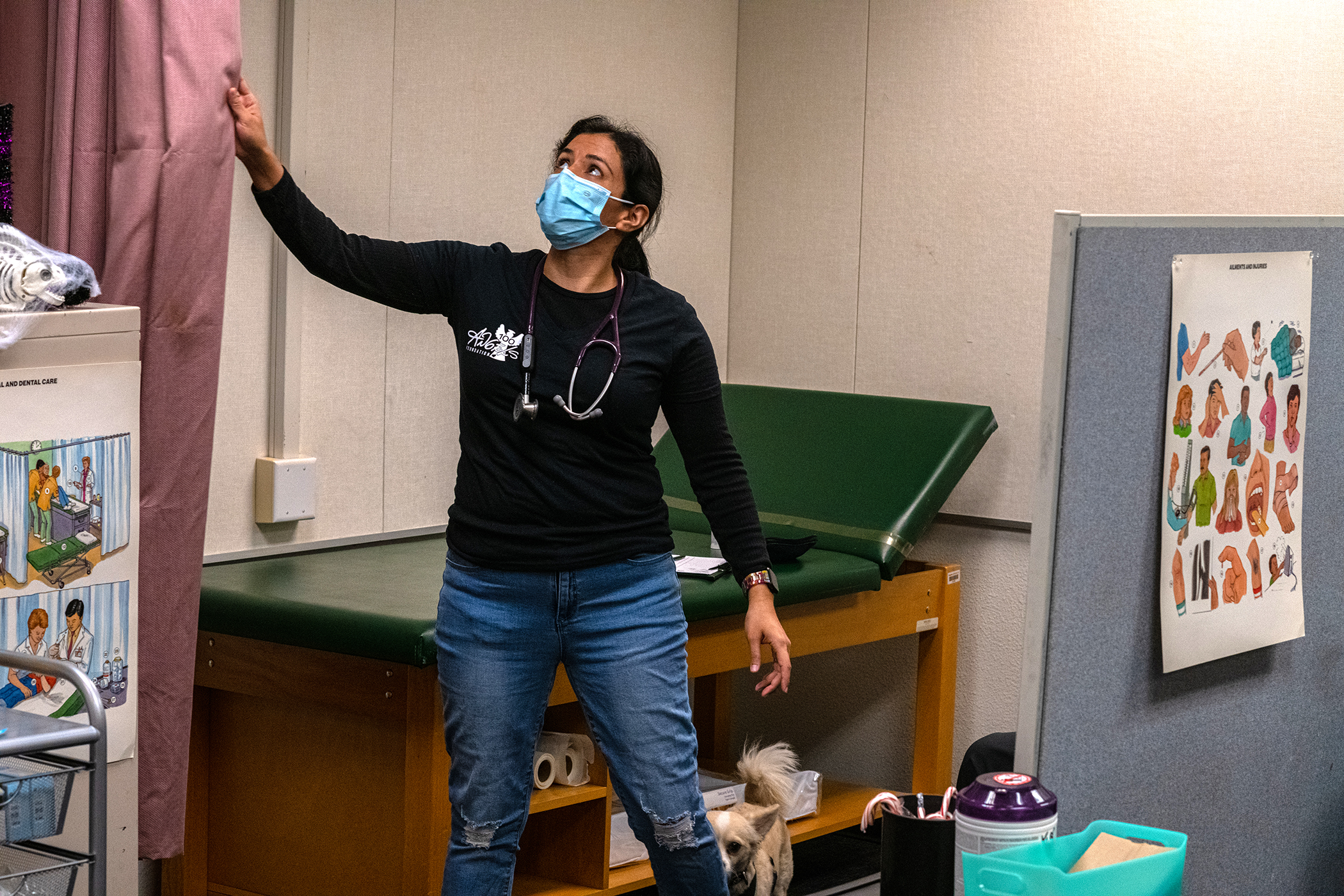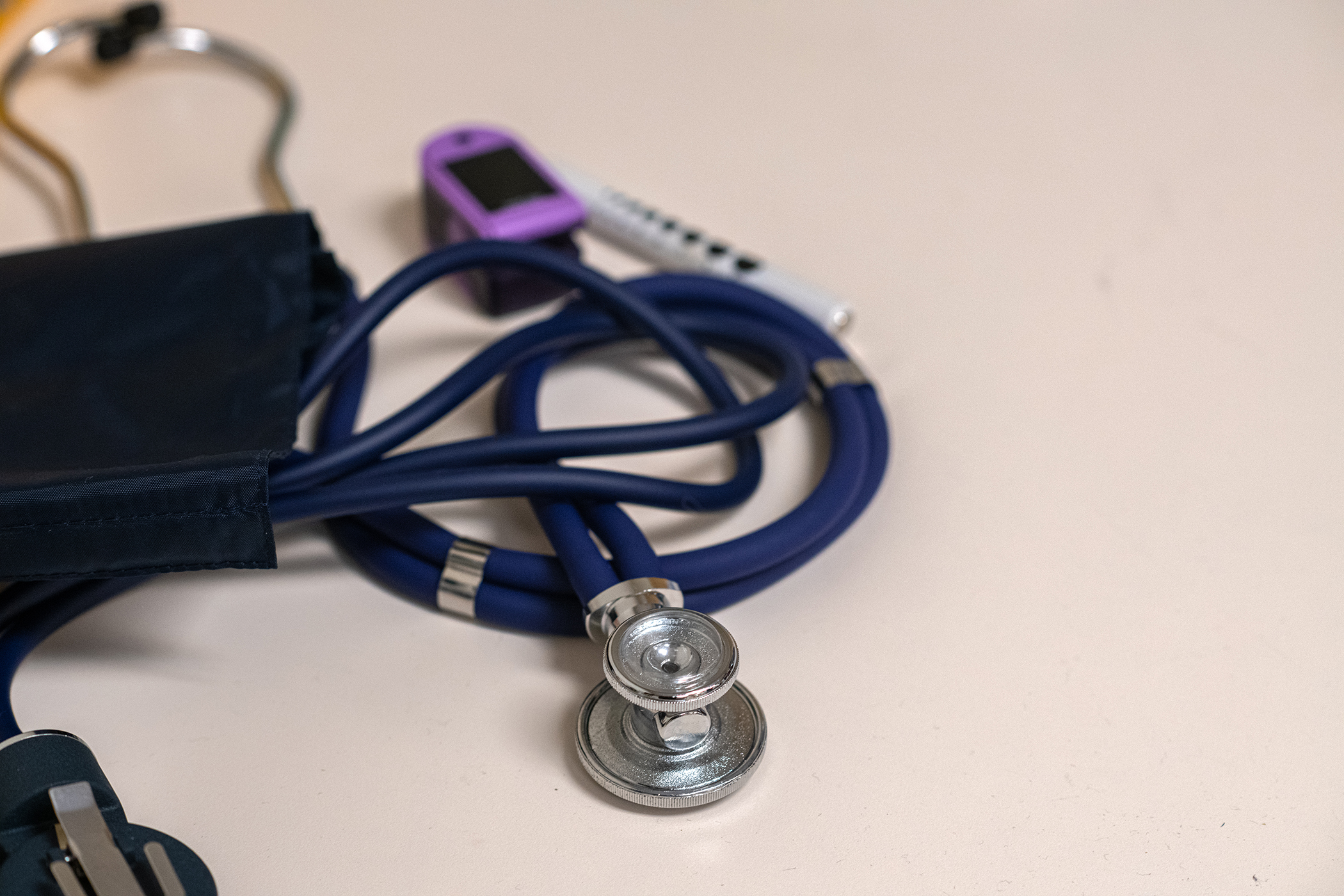Cecilia Garcia recalls the first time she drove past churches in Phoenix, Arizona, and saw groups of asylum seekers being dropped off by US Immigration and Customs Enforcement (ICE).
“People were arriving by the hundreds. It was chaotic everywhere you looked,” she told Global Citizen.
In December 2018, asylum seekers who were released from migrant detention centers began arriving at Latino churches in the Phoenix Valley.
Migrants, who were typically arriving in the US after months of long, dangerous journeys by foot, were facing critical conditions.
“People were dehydrated and traumatized. They had fungus on their feet from walking in the river and wearing the same shoes for days,” Garcia said.
In recent years, the number of migrants seeking entry into the US has increased, which has led to processing backlogs and dire conditions in overcrowded facilities. The government’s handling of asylum seekers, including forced separation of children from parents and allegations of forced sterilization of women, has been widely criticized.
 Cecilia Garcia in the 100 Angels medical clinic inside the IRC Welcome Center, on Nov. 9, 2020, in Phoenix, Ariz.
Cecilia Garcia in the 100 Angels medical clinic inside the IRC Welcome Center, on Nov. 9, 2020, in Phoenix, Ariz.
Cecilia Garcia in the 100 Angels medical clinic inside the IRC Welcome Center, on Nov. 9, 2020, in Phoenix, Ariz.
“What’s happening to them could happen to you, that could be my children,” Garcia, who immigrated to the US from Uruguay over two decades ago at the age of 20, said. “If I had to run to get my children to safety, I'd do it. They did it.”
Garcia, who is a single mom and small business owner, founded the nonprofit One Hundred Angels in 2018, just months before she noticed the influx of asylum seekers in Phoenix.
She originally founded the organization to provide humanitarian assistance in Central America. And while she hadn’t planned on providing assistance closer to home, she quickly changed course when the need arose.
“I don’t have any medical background, I’m just a mom,” Garcia said.
But she leaned on her organizational and management skills, and within days, the mother of two teenage sons was able to successfully set up pop-up medical stations at churches where asylum seekers were arriving. She collected medical supplies and coordinated volunteers, including first responders, nurses, and medics.
“The circumstances we find them in are alarming. They are so weak — physically and emotionally,” Garcia explained.
The One Hundred Angels volunteer medical team now works out of 28 churches and shelters in Phoenix that welcome asylum seekers and has supported 18,000 people to date. They triage, assess migrants for emergencies, and provide comfort packages containing vitamins, electrolytes, and over-the-counter drugs.
 100 Angels team members work in the medical clinic at the IRC Welcome Center in Phoenix, Ariz. The 100 Angels volunteer medical team now works out of 28 churches and shelters in Phoenix that welcome asylum seekers and has supported 18,000 people to date.
100 Angels team members work in the medical clinic at the IRC Welcome Center in Phoenix, Ariz. The 100 Angels volunteer medical team now works out of 28 churches and shelters in Phoenix that welcome asylum seekers and has supported 18,000 people to date.
100 Angels team members work in the medical clinic at the IRC Welcome Center in Phoenix, Ariz. The 100 Angels volunteer medical team now works out of 28 churches and shelters in Phoenix that welcome asylum seekers and has supported 18,000 people to date.
Asylum seekers have shared with Garcia anecdotes about the migrant detention centers, including being served frozen food and lacking access to basic hygiene facilities.
“There were cases where people would [have] their medicine taken away and not given it back, and other times where children were given [medical] treatment, but not educated on how to continue this treatment when they left,” Garcia said.
In 2019, she began hearing of children dying in detention centers of preventable illnesses, and of the arrests of doctors who wanted to provide vaccines. At least seven migrant children have died while in US custody or shortly after their release, with at least three of them dying in part due to the flu.
Knowing the barriers facing children and their access to vital vaccines in detention centers, the health advocate thought of a workaround.
“We knew families were waiting in Mexico and would be in the process of going into detention and being in close quarters, so we said, let’s vaccinate before [they arrive],” she said.
So Garcia went to a local pharmacy and bought all the influenza, chicken pox, and measles vaccines they had. Together with professional medical volunteers, she drove the six-hour round trip from Phoenix to San Luis Rio Colorado, Mexico. There, she hosted a one-day vaccination drive at a migrant shelter. With a limited number of vaccines, shelter staff helped identify those who were most vulnerable.
 Details of the medical clinic inside the IRC Welcome Center, on Nov. 9, 2020, in Phoenix, Ariz.
Details of the medical clinic inside the IRC Welcome Center, on Nov. 9, 2020, in Phoenix, Ariz.
Details of the medical clinic inside the IRC Welcome Center, on Nov. 9, 2020, in Phoenix, Ariz.
Initially, Garcia wasn’t sure how migrants would react.
“I was wondering, ‘How would they trust us with the health of their children?’ But you should have seen those moms lining up [for vaccines] and putting their children ahead of them,” she said.
Following the success of the first vaccine drive, Garcia raised funds to purchase more vaccines and drove to Mexico once again, collaborating with the Mexican Red Cross (Cruz Roja Mexicana), who administered them.
Plans for future vaccine drives were forced to a halt due to COVID-19 safety concerns this past March, but Garcia aims to pick them back up as soon as she can.
 Cecilia Garcia poses for a portrait on Monday, Nov. 9, 2020, in Phoenix, Ariz.
Cecilia Garcia poses for a portrait on Monday, Nov. 9, 2020, in Phoenix, Ariz.
Cecilia Garcia poses for a portrait on Monday, Nov. 9, 2020, in Phoenix, Ariz.
Meanwhile, One Hundred Angels continues to provide medical checkups in Phoenix to asylum-seeking families, and encourages parents to vaccinate their children, while also providing information on free and low-cost medical care options.
“It’s a life or death matter. I believe in science,” Garcia said. “I think science is real, and vaccines save lives, so if you can … save our children's lives, wouldn't you do it? I do it.”
If 2020 has taught us anything about global health, it’s the importance of vaccines. The World's Best Shot is a profile series dedicated to sharing the stories of vaccine activists around the world.
Disclosure: This series was made possible with funding from the Bill and Melinda Gates Foundation. Each piece was produced with full editorial independence.
